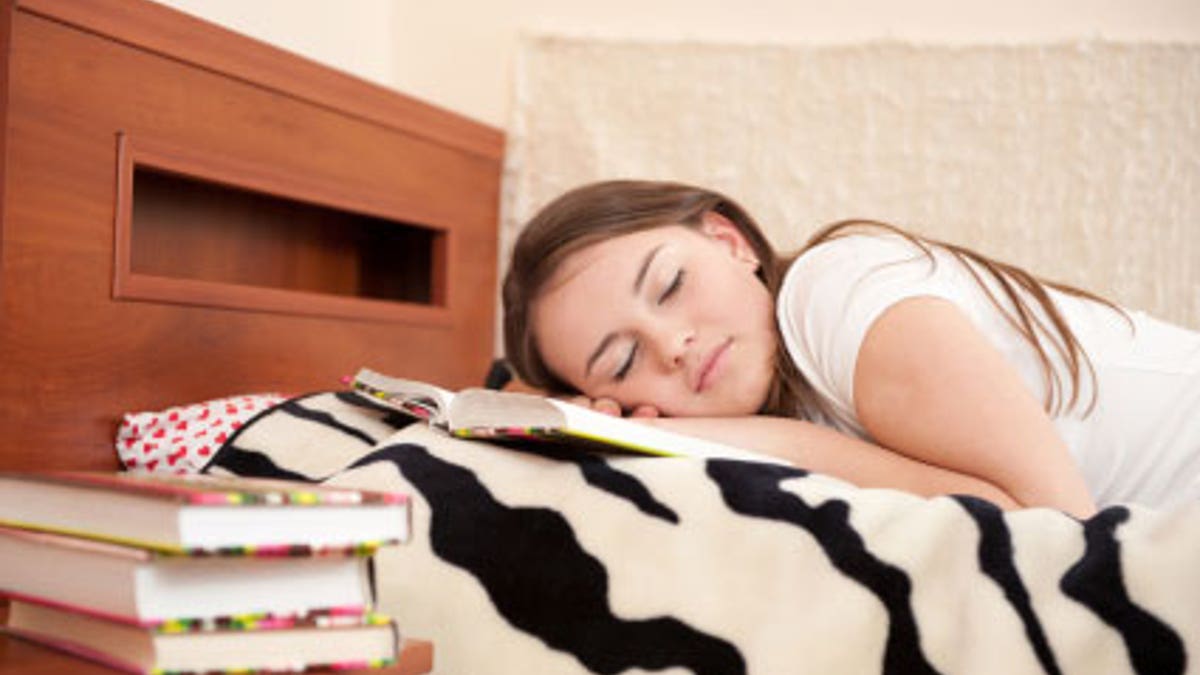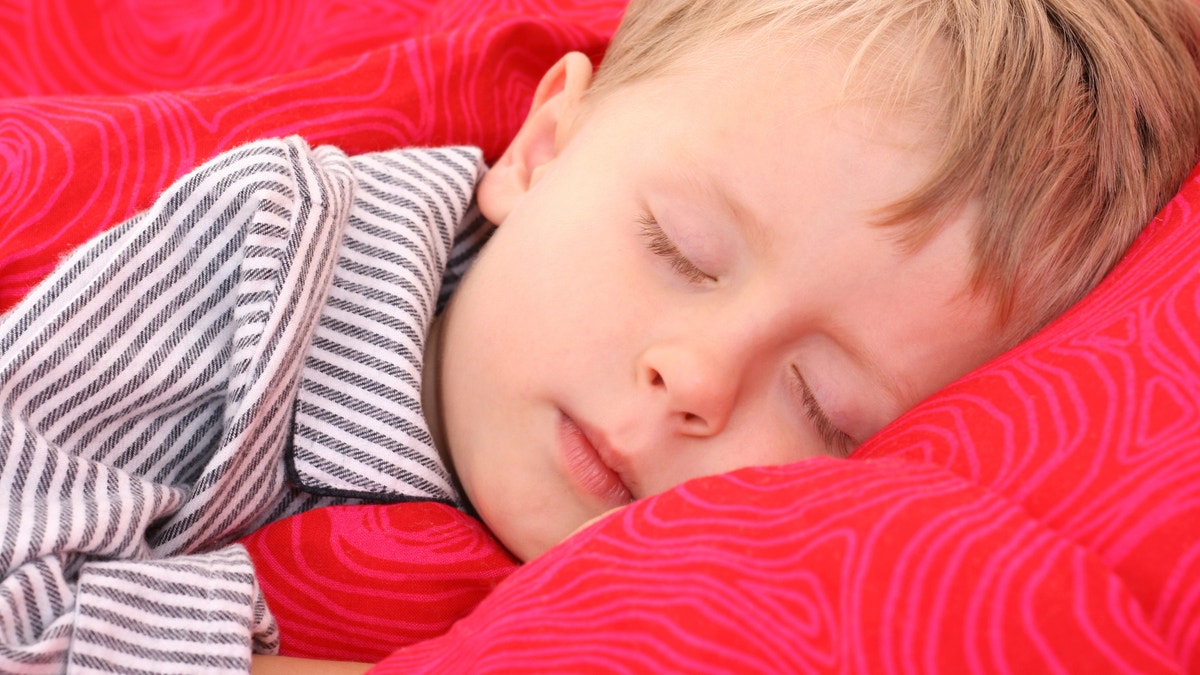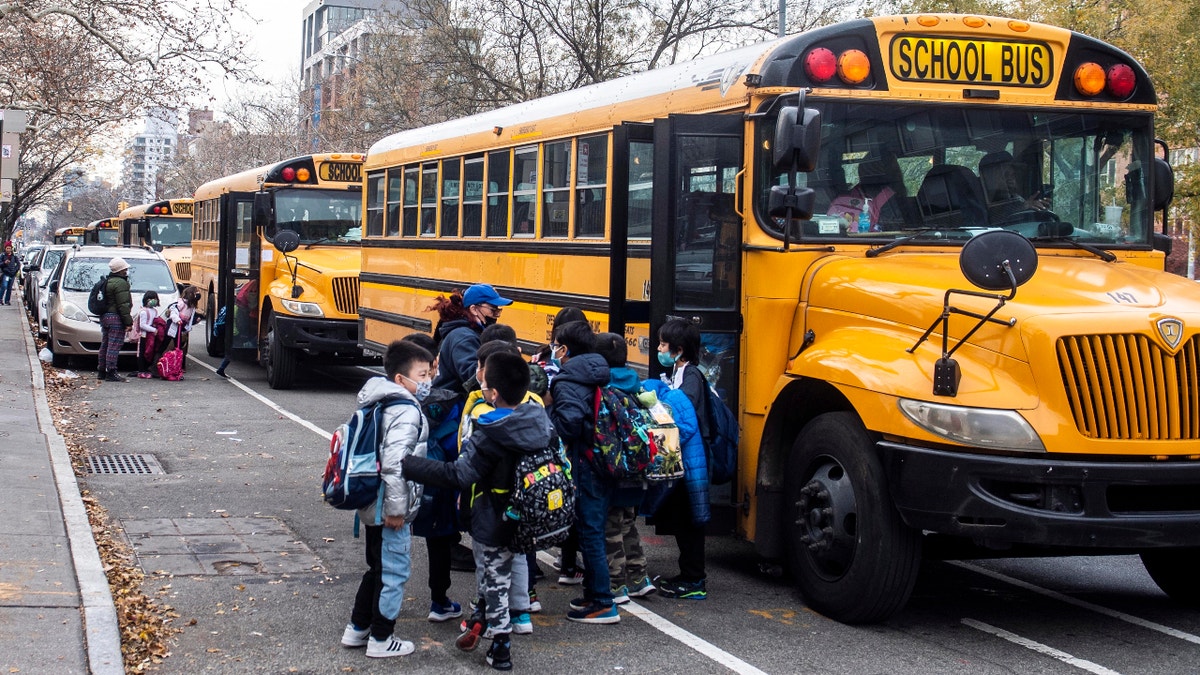How inflation has affected back-to-school expenses
Chicago mom of two Ester Di Filippo on how rising inflation has driven up costs and how families are struggling as kids get ready to head back to school.
Millions of America's kids will soon be heading back to school — and good sleep hygiene should be part of their daily routines to keep them healthy.
But it's never too soon to get them into the healthy practice of getting enough good sleep every night.
"Sleeping the number of recommended hours on a regular basis is associated with better health outcomes including improved attention, behavior, learning, memory, emotional regulation, quality of life, and mental and physical health," said the American Academy of Sleep Medicine in a consensus statement.
GET BETTER SLEEP AT NIGHT WITH THE HELP OF 10 SLEEP PRODUCTS
The American Academy of Pediatrics (AAP) reminds families to be good examples for their children.
"Making sleep a priority for yourself shows your children that it’s part of living a healthy lifestyle — like eating right and exercising regularly," according to HealthyChildren.org, which is run by the AAP.

Getting enough sleep every night is part of a healthy lifestyle — and parents need to model this for their children. (iStock)
Here is smart advice for parents and guardians.
Maintain a regular routine
Start early with small children, the AAP suggests, in terms of setting a bedtime routine, such as the "brush, book, bed" program developed by the pediatric association.
"The same waking time, meal times, nap time and play times will help your child feel secure and comfortable and help with a smooth bedtime," according to the AAP.
CHICAGO MOTHER PREPARES FOR BACK-TO-SCHOOL SHOPPING AMID INFLATION: ‘DEFINITELY A STRUGGLE’
"Make sure the sleep routines you use can be used anywhere, so you can help your child get to sleep wherever you may be."
Create a good sleep environment
Kids should use their bed as a place to sleep — not as a place to play, says the AAP.
Limit screen time by turning off all screens at least 60 minutes before bedtime, the association also says.

Help children fall asleep at night by keeping to a routine and creating a good sleep environment — plus following other smart tips as shared here. (iStock)
To create a good sleep environment, dim the lights before bed, control the temperature in the room and avoid having too many toys in the child’s bed.
The exception to that would be a child's favorite doll or security blanket that can help ease separation anxiety.
Babies should not be put to bed with juice, milk or formula, as these may cause tooth decay, although water is OK.
Parents should also avoid giving any solids to infants prior to six months of age; this may give them a "tummy ache" — they may not be able to sleep well.
Limit the schedule of activities in the evening, such as sport games, appointments and lessons that can influence kids' sleep patterns.
But "after a child hits puberty, a natural shift occurs in their circadian rhythm" by about two hours or so, said Dr. Baljinder S. Sidhu, a pulmonologist and sleep specialist who is co-owner of Pacific Coast Critical Care Group in Southern California.
ONLINE DANGERS ARE RAMPANT FOR KIDS TODAY — WHY PARENTS MUST KEEP THEM CYBER SAFE
He told Fox Digital News that this is known as "sleep phase delay," which parents can mistake for insomnia. It can be associated with trouble getting up in the morning.
"We think of this as ‘late to bed, late to rise.’"
Limit the activities in the evening
For the 2022-23 school year, the state of California became the first state to require public schools to start later this year for high school and middle school children.
The AAP has been advocating for schools to have later start times for children to be more alert and healthy.

Most teens need 8 to 10 hours of sleep a night; pre-teens need around 10 hours, said Dr. Jason Bronstein, a medical director of pediatric sleep. (iStock)
The school day cannot start earlier than 8:30 a.m. for most high schoolers and no earlier than 8 a.m. for most middle schoolers, according to the law that California legislators passed in 2019 that went into effect on July 1 of this year.
"Although we have to recognize the increased burden that later school times have on working parents, the scientific rationale is well intended," Sidhu told Fox Digital News.
TEXAS TEACHERS' VIRAL TIKTOK DANCE VIDEOS SHARE POSITIVE CONTENT FOR YOUNG PEOPLE
AAP also recommends limiting the schedule of activities in the evening, like sport games, appointments and lessons that can influence sleep patterns.
Parents should also make sure kids get plenty of physical activity and fresh air. But parents should watch out for snoring, difficulty falling asleep, nighttime awakening or stalling to go to bed, as these may be signs of sleep problems in children.
How many hours of sleep does a child need?
"Everyone is different in how much sleep they require, but in general, younger children need more sleep," said Dr. Jason Bronstein, medical director of pediatric sleep at Mount Sinai Kravis Children’s Hospital in New York City.
He noted that "if your child is tired, irritable, has trouble focusing, or dozes off during the day" — then that child probably "needs more sleep."

Parents also need to make sure their kids get plenty of physical activity and fresh air. (AP Photo/Brittainy Newman, File)
"Most teenagers need 8 to 10 hours of sleep; pre-teens need around 10 hours; younger school-aged children might need 11 hours; preschoolers need 11 or 12 hours (including naps); toddlers 12 or 13 hours (including naps); and infants need from 12 to 16 hours (including naps)," he said.
"A good night's sleep includes slow wave sleep (deep sleep) early in the night, and increasing REM (dream sleep) into the morning," Sidhu added.
"Everyone is different in how much sleep they require, but in general, younger children need more sleep."
"Lack of REM sleep has been associated with poor memory, mood disorders such as anxiety/depression," he said, "as well as an overall decrease in daytime functioning."
Know that quantity and quality of sleep matters
"Quality sleep requires a fairly consistent schedule, including meals, activity, bedtime routine and bed/wake times," said Bronstein, who’s also an assistant professor of sleep medicine and pediatric pulmonology in the department of pediatrics at the Icahn School of Medicine at Mount Sinai.
Children's schedules ideally shouldn't vary by more than an hour from the weekdays to weekends, he said, to maximize the quality of their sleep.

"Most families," said one physician, "get on a later schedule during the summer." That's why it's wise to transition "to an earlier schedule" before school starts this fall. (iStock)
"It's important to dim the lights, turn off electronic devices and have calming activities before bed — getting cleaned up, reading a book, etc."
Adjust sleep patterns in the summer
"Most families get on a later schedule during the summer," said Bronstein.
For these reasons, he suggested that "transitioning to an earlier schedule is helpful prior to the start of school."
CLICK HERE TO SIGN UP FOR OUR LIFESTYLE NEWSLETTER
As the beginning of the school year gets closer, he suggested children get up earlier than they did over the summer a week or two before school opens.
That way, the transition back to school will be smoother.
"Transitioning to an earlier schedule is helpful prior to the start of school."
"Help motivate your child by coming up with reasons to get up earlier — and stay consistent, even if there's no other hard reason to get up early, even on the weekends," he said.
"Encourage your child to get outside and get bright light exposure in the morning to help advance their circadian rhythm."
CLICK HERE TO GET THE FOX NEWS APP
But if a child’s sleep doesn’t improve despite these recommendations or the child is not well rested despite practicing good sleep hygiene, then talking to the pediatrician about it is a wise idea, Bronstein recommended.


